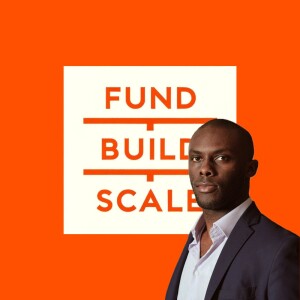
Saturday Dec 14, 2024
Seed-stage Valuation Insights from Lightspeed's Nnamdi Iregbulem
If a team hasn’t built a minimum viable product, secured paying customers, or demonstrated strong unit economics, what exactly are seed-stage investors betting on?
To get some answers, I sat down with Nnamdi Iregbulem, a partner at Lightspeed Venture Partners, to discuss what drives seed valuations, the traits of successful founders, and his perspective on AI startups.
“A lot of the pitches that I get are basically two people, a PowerPoint deck, and their dog,” Nnamdi told me during our conversation in October 2024.
Nnamdi shared his journey from coding as a kid to investment banking at JP Morgan, growth-stage investing at Iconiq Capital, and now helping early-stage founders at Lightspeed. He explains why seed valuations often reflect the opportunity cost of the founding team more than traditional factors like interest rates or public market comps, and highlights the rising costs of GPUs and AI talent as critical considerations.
We also explored the traits that set exceptional founders apart — like strong domain expertise, adaptability, and demonstrated excellence — and why inference-based AI startups may have an edge over those focused on training new models.
For aspiring VCs, Nnamdi offers practical advice on developing domain expertise, building a network, and honing the skills needed to evaluate companies effectively. Whether you’re a founder, investor, or simply curious about the startup ecosystem, this episode is packed with actionable insights.
RUNTIME 33:24
EPISODE BREAKDOWN
(2:24) “ I was the first-born son of two Nigerian immigrants who really badly wanted me to be a doctor.”
(6:17) “ I was sort of like, ‘what do I know about early-stage companies?’ I never worked in a startup.”
(8:50) The day-to-day work Nnamdi does with the founders in Lightspeed’s portfolio.
(11:13) He explains why seed valuations aren’t valuations.
(13:31) “ The only characteristic… that had any real predictive value was the opportunity cost of the founder.”
(16:43) “ Coming from a large and stable big tech company is not the positive signal that it used to be.”
(17:32) The weights and measures he uses to assess seed-stage founders.
(19:33) When domain expertise is (and is not) useful.
(20:53) How he evaluates technical vs. non-technical founders.
(24:16) “A lot of the pitches that I get are basically two people, a PowerPoint deck, and their dog.”
(25:18) How to pitch Nnamdi directly.
(26:21) Setting valuations is “ more driven by the founders than it is by us.”
(29:33) His advice for anyone who wants to break into venture capital.
LINKS
SUBSCRIBE
📥 LinkedIn: https://www.linkedin.com/newsletters/7249143254363856897/
📓Substack: https://fundbuildscale.substack.com
📸 Instagram: https://www.instagram.com/fundbuildscale/
Thanks for listening!
– Walter.
No comments yet. Be the first to say something!